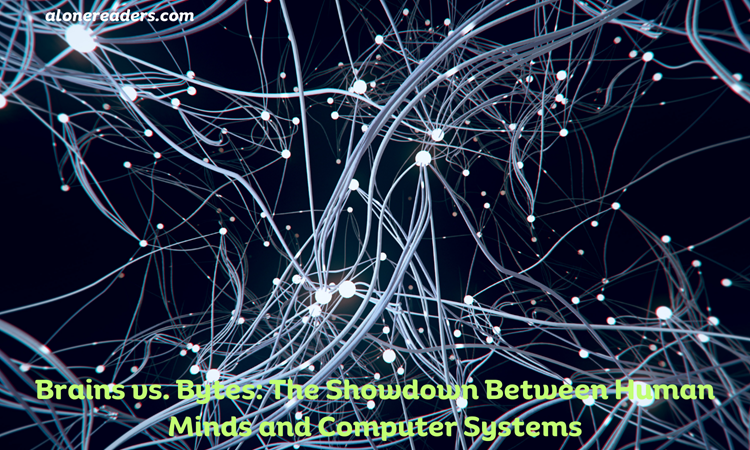Brains vs. Bytes: The Showdown Between Human Minds and Computer Systems
- Last updated: November 03, 2023

When we compare the human brain to a computer, we venture into a fascinating exploration of nature's complexity versus human ingenuity. Both are remarkable for their processing abilities and functions, yet they operate on vastly different principles and scales. This article delves into the characteristics, capabilities, and potential of the human brain and computers, illuminating the astonishing feats they can achieve as well as their limitations.
The Fundamental Differences
Design and Operation
The human brain is an organic marvel, the product of millions of years of evolution. It consists of approximately 86 billion neurons, with each neuron forming about 1,000 to 10,000 synapses, equating to more than 100 trillion connections. This vast network operates on chemical and electrical signals, allowing for incredibly complex processing. On the other hand, computers are human-made devices that work on digital signals, utilizing a binary system of 0s and 1s to perform calculations and execute tasks.
Processing Power and Efficiency
The processing power of the human brain is estimated to be equivalent to 1 exaFLOP (a billion billion calculations per second), which far exceeds that of the fastest supercomputers. However, computers can perform tasks at a speed that is unfathomable to the human brain, such as calculating complex mathematics or processing large data sets in seconds.
Despite their speed, computers require much more energy than the brain. The human brain operates on approximately 20 watts of power — about as much as a dim light bulb. In contrast, a supercomputer like Summit, one of the world's most powerful, can consume more than 15 megawatts — enough to power several thousand homes.
Memory and Storage
In terms of memory, the brain uses something akin to content-addressable memory, which means that it remembers by association and by patterns rather than by a specific "address" like a computer memory does. The human memory is also highly fallible, susceptible to degradation and distortion over time. Computers, conversely, have a more reliable and vast capacity for storage that isn't affected by the passage of time, but they lack the ability to make associative connections between different pieces of information.
Learning and Adaptability
One of the most significant differences is in learning and adaptability. The human brain is capable of learning and adapting throughout its lifetime, thanks to a process called neuroplasticity. It can form new connections, strengthen existing ones, or even create new neurons under the right conditions. Computers, while they have made leaps and bounds in the field of machine learning and artificial intelligence, still operate within a framework defined by their programming and algorithms.
Efficiency and Power Use
The efficiency of the human brain is unmatched when you consider its power usage. At around 20 watts, it can perform tasks that no computer can, especially when it comes to pattern recognition, understanding context, and emotional intelligence. In terms of raw data processing, however, computers can handle more tasks simultaneously and execute operations faster than the brain.
Artificial Intelligence and Human Intelligence
The field of artificial intelligence (AI) strives to create computers and software that can reason, learn, and act intelligently. Modern AI systems, such as neural networks, are inspired by the human brain's structure, attempting to replicate its functions through algorithms and deep learning techniques. Despite this, AI cannot match the depth and breadth of human consciousness and understanding.
The Potential for Collaboration
Rather than viewing computers as competitors to the human brain, it is more productive to see them as complementary. Computers excel at storing vast amounts of information and performing quick, repetitive calculations, while the human brain is adept at making complex decisions, understanding nuance, and learning from unstructured data. Together, they can achieve more than either could alone.
The Future of Brain-Computer Interfaces
Brain-computer interfaces (BCIs) are emerging technologies that enable direct communication between the brain and external devices. BCIs have the potential to revolutionize the way we interact with computers, from restoring lost functions due to neurological damage to enhancing cognitive abilities.
Conclusion
In conclusion, the human brain and computers are vastly different entities, each with its own set of strengths and weaknesses. Computers are marvels of human creation, designed to calculate and process data at incredible speeds, while the human brain is an organic powerhouse of complexity and adaptability. As technology continues to advance, the gap between the two narrows, but the fundamental differences remain. The comparison isn't about determining a winner but rather understanding how each can contribute to the growth and betterment of society. The synergy between human intelligence and computational power is where the most exciting possibilities lie, and this partnership will undoubtedly shape the future of humanity.







